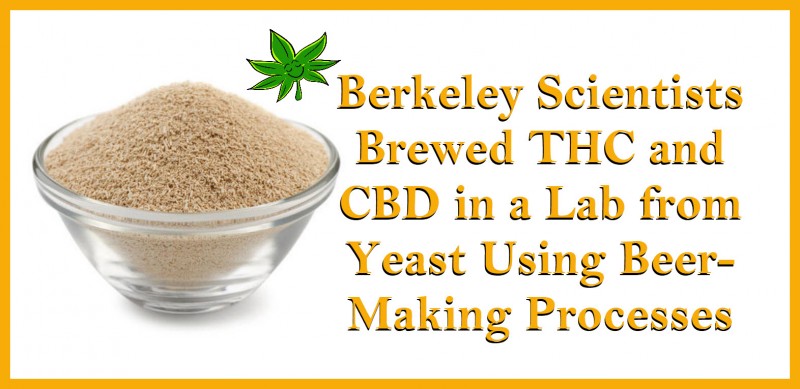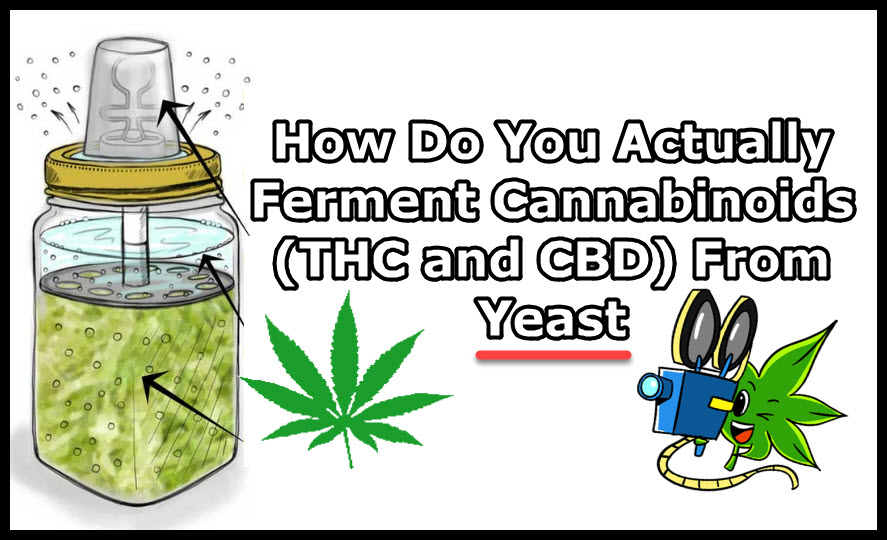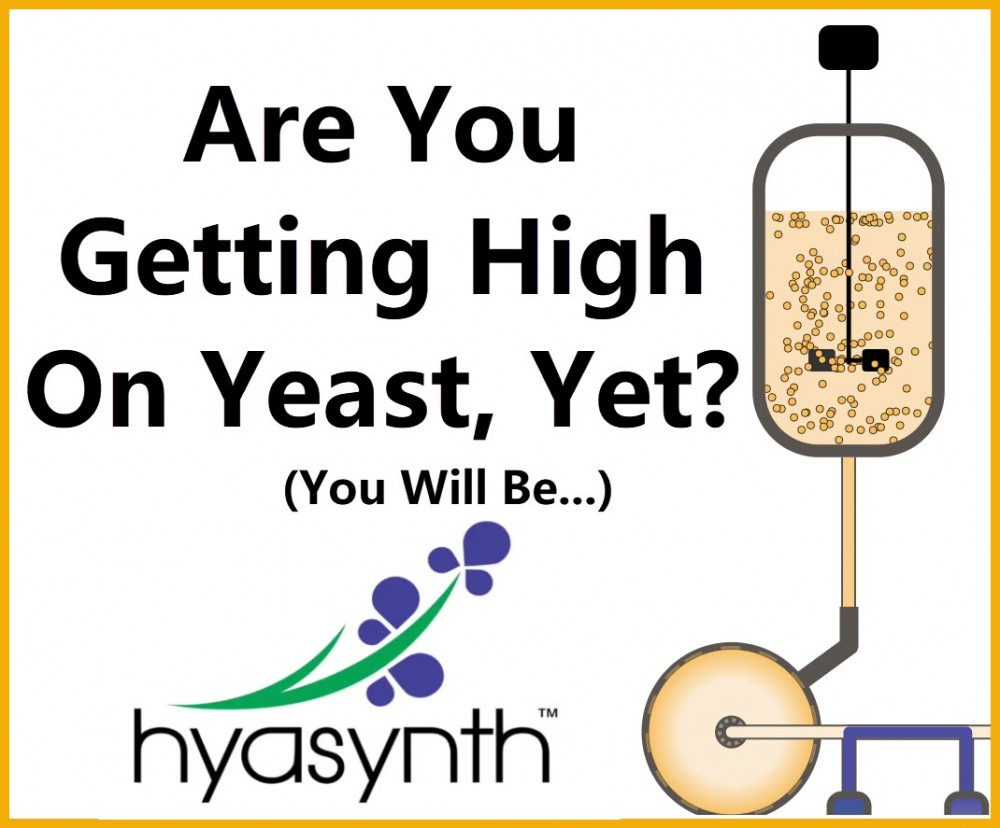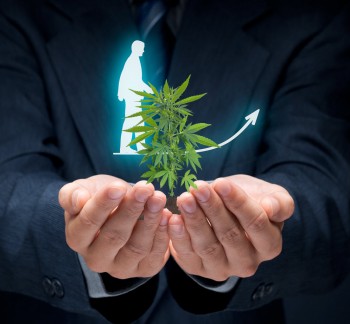Berkeley Scientists Brewed THC And CBD In A Lab From Yeast Using Beer-Making Process
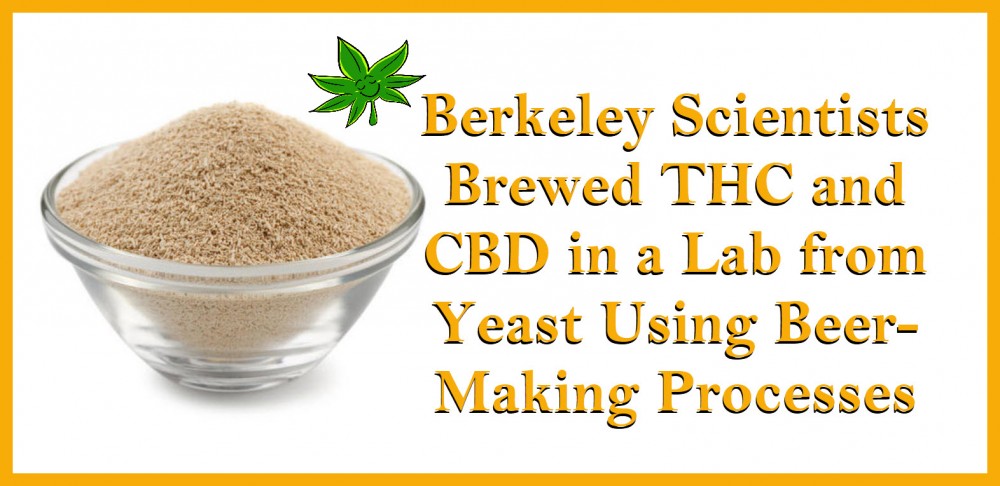
Synthetic cannabinoids aren’t exactly a novel idea…. But cannabinoids from yeast sure are.
That’s exactly what these brilliant scientists from the University of California at Berkeley were able to do. For the first time ever, they’ve been able to manufacture cannabis compounds from a laboratory using a process known as synthetic biology, instead of extracting them from the plant.
How, you ask?
Using yeast.
Genetically modified yeast was fermented, followed by the addition of sugar. As a result, they were able to duplicate THC and CBD, two of the best-known compounds in cannabis. THC is the cannabinoid that gets you high, while CBD isn’t psychoactive yet has been shown to have valuable and life-saving benefits particularly for anxiety and epilepsy.
The researchers published a paper which was released in Nature, where they discussed their findings and the process. According to Jay Keasling, professor in biomolecular and chemical engineering from the University of California Berkeley and lead author of the study: “The process is just like brewing beer,” he explains. “You feed the yeast sugar and they produce the cannabinoid you want to produce, rather than ethanol, which they would normally produce.”
With traditional beer brewing, yeast creates enzymes that convert sugar into carbon dioxide and alcohol. But with the scientists’ process, they were able to introduce over a dozen genes into the DNA of the yeast, many of which were actually copies of the genes that are used from the cannabis plant to produce synthesized cannabinoids. Then, the genes release enzymes which promote a series of chemical changes. It starts out with the sugar, followed by cannabigerolic acid, which then produces many cannabis compounds including CBD and THC.
Flasks were used by the researchers to grow yeast, then turned to the massive stainless steel containers commonly found in beer breweries to increase production.
It was an arduous process identifying the precise combination of genetic insertions to succeed. Now that they’ve discovered it, cannabinoids can now be harvested in the same way as one would do with regular brewer’s yeast.
The team of scientists have already established a cannabinoid brewing firm called Demetrix, which they say could already be supplying amounts of the product by next year. They explain that the primary advantages to the process are that it’s less expensive, more ecologically sound, and safer compared to the process of extracting cannabinoids from the cannabis plant. Conventional methods of cultivating cannabis indoors are extremely energy-intensive because indoor grow lights are notorious for sucking up energy, but when it comes to quality, the lab-made cannabinoids don’t come with the risk of pesticide and other harmful toxins that are associated with cannabis grows.
“The economics look really good,” says Keasling. “The cost is competitive or better than that for the plant-derived cannabinoids. And manufacturers don’t have to worry about contamination – for example, THC in CBD – that would make you high.”
“For the consumer, the benefits are high-quality, low-cost CBD and THC: you get exactly what you want from yeast. It is a safer, more environmentally friendly way to produce cannabinoids,” says Keasling.
What’s interesting is that the scientists were also able to produce lesser-known cannabinoids in the plant such as THCV which has its own therapeutic applications although they’re found in such tiny quantities in cannabis. This makes the study much more exciting because it introduces the possibility that brewing could actually be a game changer in the way medications are made.
“It was an interesting scientific challenge,” Keasling said, saying that it was similar to other challenging projects he’s had in the past with his colleagues, yet they’ve been able to succeed in creating an antimalarial medication from yeast alongside many other novel approaches to manufacturing medications. “But when you read about cases of patients who have seizures and are helped by CBD, especially children, you realize there is some value in these molecules, and that producing cannabinoids in yeast could really be great.”
Last year, a major Canadian cannabis producer named Organigram invested $10M into a biotech firm, Hyasynth Biologicals, Inc.
Hyasynth has been able to extract cannabinoids also from yeast, this time using a cellular agriculture-based process. Their patent-pending technology enabled them to create phytocannabinoids using genetically engineered strains of yeast, producing THC, CBD, and CBG.
Yeast is proving to be an exciting substance that doesn’t just make bread and beer – now, it has the potential to save lives too.
OTHER STORIES YOU MAY ENJOY...
HOW DO YOU MAKE THC AND CBD FROM YEAST, CLICK HERE.
OR..
CAN YOU MAKE THC AND CBD FROM YEAST NOW, READ THIS.

